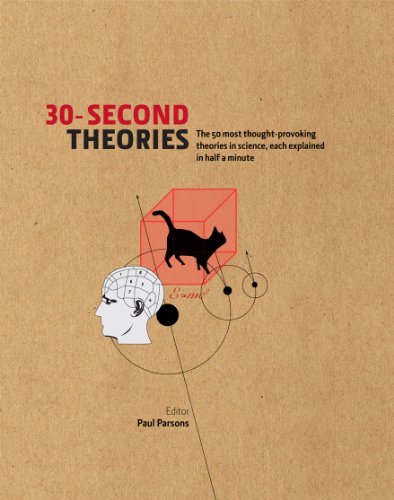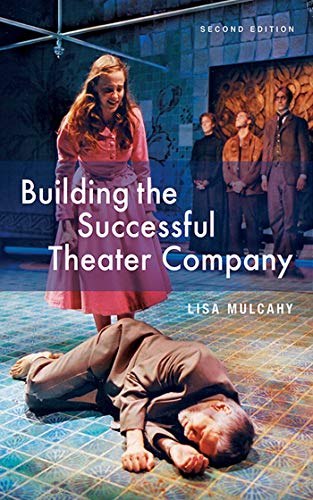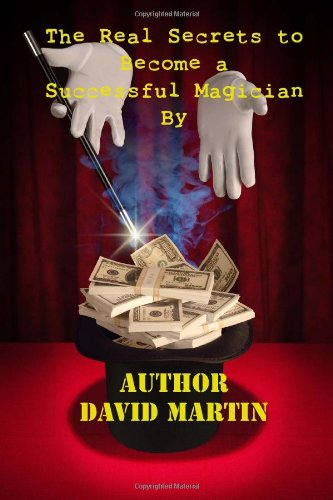(Part 2) Best theater direction & production according to redditors
We found 175 Reddit comments discussing the best theater direction & production. We ranked the 65 resulting products by number of redditors who mentioned them. Here are the products ranked 21-40. You can also go back to the previous section.




















To help with your understanding try reading this
And this
That should get you started.
But for real though. They're talking about the cables that hold everything up. Specifically, someone mentioned they were using verlocks to level it out, and that's what gave way. This is what they're talking about. ...I think. In which case I think you're right about the price. Though they may have been talking about this: in which case $12 is a descent estimate.
Source: Fuck if I know I'm an electrician I just plug shit in. Don't listen to me.
Scene Design and Stage Lighting is an often-used text-book from what I can tell. I have an old version myself, but can't attest to the current version. Design and Drawing for the Theatre is also an old standby (and denser), though it appears it's out of print.
If you want something lighter and less expensive, perhaps Fundamentals of Theatrical Design or An Introduction to Theatre Design, though they aren't limited to just scenery. I haven't read the former, but the I've taught from the latter in an intro to design course. It's rather light, but that can be good for a first book.
You can also go the more theoretical route, and pick up the classic Dramatic Imagination by Robert Edmund Jones. What is Scenography? and Scenographic Imagination are chock-full of great theoretical discussion for the long term, but not suited for your first dip into the pool. Might be worth bookmarking for down the road, though.
And sometimes it's good to just have a survey of other's work. American Set Design isn't a bad place to start for that. I recently picked up World Scenography, and while I haven't had the chance to sit down extensively with it, it's a gorgeous book.
This is of course just going from scene design, there's also options out there about the history of design, useful technical handbooks for the craft, or even more specific things like model-making.
If you're already generally familiar with theater and roughly understand the production process, maybe grab one of the two in the first paragraph. If you're coming in completely fresh, starting with one of the cheaper super-introductory books in the second paragraph might be better to ease in. If you have the funds, I'd suggest one from each paragraph. Perhaps others in this sub have more specific choices they feel are definitively superior than other options.
Also, I'm guessing your university may not have a design professor, but you might suggest an independent study in scene design as a course. Hope this helps!
If there's someone more experienced in the area who can coach you, rope them in to coach. It's very hard a team to coach itself.
If that's absolutely impossible, pick up a copy of Directing Improv by Asaf Ronen, paperback, eBook.
That is a very lofty goal. Do your research! Non-profit doesn't mean you're not looking to turn a profit, it means any revenue gets turned back towards the mission (usually social outreach) which also means you still need a profit. Learn from others. Do not do this alone; get help. There is a lot of hard work in between here and there.
For the sort of advanced technician:
Sound Systems: Design and Optimization
http://www.amazon.com/Sound-Systems-Optimization-Techniques-Alignment/dp/0240520203
and
Structural Design for the Stage
http://www.amazon.com/Structural-Design-Stage-Alys-Holden/dp/024080354X/ref=sr_1_1?s=books&ie=UTF8&qid=1334381849&sr=1-1
A few resources that might help:
Improv Theater and Festival Management Facebook Group: https://www.facebook.com/groups/improvmgmt/
Some books:
http://www.amazon.com/How-Start-Your-Theater-Company-ebook/dp/B0054SBJB2
http://www.amazon.com/How-Run-Theatre-Creating-Professional-ebook/dp/B00D1Z539E
http://www.amazon.com/Building-Successful-Theater-Company-Mulcahy-ebook/dp/B004FGMD1O
I've asked around about this, but I don't really know anything firsthand. Although Jill Bernard will warn you about the money you'll end up spending on toilet paper is much higher than you would have thought.
This book
is something I need to write my dissertation in the next few months. Books are great, but expensive!
I've actually heard multiple stories about people opposing evolution or the creation of the universe in class. I was just reading 30 Second Theories at work the other day and someone looked over my shoulder and told me how it's a load of BS because it's not in the bible.
This book is a bit dated at this point but it clearly relates a lot of theatre terms if that is what you want to learn: http://www.amazon.com/Technical-Theater-Nontechnical-People-Campbell/dp/1581153449
Communication is really important for a position of that nature, it may be too much work to learn all the terms that most people would be familiar with in a short period of time. But being able to explain what you mean can help you get around that issue until you can pick up on terms. (I understand when you say sliders, though I figure most people call them faders) Taking a smaller position on a show can also help. You may be used to be doing somethings in a certain way that was unique to your space and situation that just might not line up to how others do it, only way to find that out is to branch out and try it.
Pick up this book, maybe it will help answer your question.
https://www.amazon.com/Structural-Design-Stage-Alys-Holden/dp/024080354X
I found that The Perfect Stage Crew is a great book for introducing basic terms and concepts. It covers a bunch of topics in theater, but the lighting chapter is pretty good as an introduction for you. I don't know what your church is like, but the sound chapter might be of use as well.
Outrageous Fortune: The Life and Times of the New American Play this is the best book I've ever read that really explains the new play development process.
Script Analysis for Actors, Directors, and Designers I have not read this book yet, but you definitely want to read something about dramaturgy
Building The Successful Theater Company this is probably the best book to read for management and arts administration
Cool. I would recommend checking out Freakonomics*, The Undercover Economist*, and 30-Second Economics. These are some (relatively) fun books that give a little insight into economics. ^*The ^sequels ^are ^great ^too.
And back to the experiment thing: remember that the decisions that people make when confronted with a choice is also economics, just like studying how a single photon moves is still physics, even though both are part of something much bigger.
Show Networks and Control Systems
The Automated Lighting Programmer’s Handbook
These are two of the good ones for breaking down the basics and going through the whole process. Both are available on Amazon.
The job consists of Communication, Budgeting, Communication, Scheduling, and Communication.
Did I mention Communication?
You should know as much about everything that is happening as possible. Be curious. Ask questions. You will be the one to spot that a change in the set design has an implication to the video designer. Or that the fabric chosen for the costumes has metallic thread and might impact the radio mics, oh and incidentally you can't put the mic pack there because the actor is wearing a harness.
You are the link between the artistic and the technical. You have to be comfortable speaking both languages and translating between the two.
Your job (and everyone else's) is to fulfil the vision of the director and creative team. Your job is to say yes whenever you possibly can. If you have to say not because of budget, or schedule or safety reasons then you must have an alternative solution to offer that is as close as possible to what the director asked for. Don't think you will get away with saying that something is impossible. Directors are not stupid and they will often have researched the thing themselves and know what could be done.
Production Management by Peter Dean is a bit old now but still good and was written by my friend and mentor.
Also look at The Production Managers Toolkit
I replied to a similar post recently, but it was specifically about sports broadcasting. Here's a little copy + paste and a few new bits:
I don't know about grad school, but my suggestion would be to study something that you actually care enough to want to report on. The best reporters and journalists usually have a really nuanced and detailed understanding of certain subjects they actually are interested in.
Grad school won't make you a good journalist. The work you put in outside of class and your passion will. You should speak to your advisors anyway about things like that. Also, find journalists that are doing what you'd like to do and look up their credentials or send them an email.
The internship sounds like a good step. It might lead to more, but it might not. It will at least give you a chance to see if you like it enough to continue on that path.
Does your university have a student radio or TV station? Those are going to be more relevant to broadcast journalism. However, starting something new at the paper does show initiative, which looks good for you.
If no on-air options are available through your school, see if there are any community radio stations with open air-shifts. Also, consider starting a podcast outside of the newspaper. It's relatively inexpensive to get started. If you want to be on camera or on-mic, you've got to spend a lot of time getting comfortable with it.
You should spend some time studying up on radio and voiceover in general. I'd suggest looking into these three books.
When everyone starts they put on an over the top "radio voice" or "TV personality" that just seems disingenuous and hokey. You'll need to work on being natural and relaxed. Smile when you talk. While you're on-air or recording, think about speaking to just one person. Seriously. You'll sound much better.
Piggybacking on the one person thing, don't say "everybody" "everyone" or "hello! insert city name." That's the easiest way you can hear an amateur right away. You're trying to make a personal connection. You wouldn't talk that way to your friends or a new acquaintance...don't do it just because you're in front of a mic.
Work on reading out loud until it doesn't sound like you're reading at all. Work on ad-libbing and improvising with information. KNOW WHAT YOU'RE GOING TO SAY BEFORE YOU EVER EVEN GET CLOSE TO THAT MICROPHONE. Being prepared will get you out of a jam if you drop your notes or forget something on the way to the studio...or if you have an old-fashioned equipment malfunction that requires you to fill up time until someone can jump in to resolve the issue.
Learn from your mistakes because you will make a lot. Luckily, audiences are fairly quick to forgive and forget. Don't let little slip ups ruin your confidence.
...I hope that's helpful. Maybe some of that isn't what you're looking for, but those are some things to think about.
http://www.amazon.com/The-Prop-Master-Successful-Theatrical/dp/1566081548
This one is pretty good for props. Doesn't really go much into MAKING props, more about what the job entails and managing props and such.
Someone recommended this book to me that talks about digital theater. I haven't gotten to read all through it yet, but I do enjoy everything I've read so far. My college didn't really have much of an updated space, so I never learned a lot of things working in it; this helped some of the gaps considering modern technology.
Interestingly, he wrote this book:
The Real Secrets to Become a Successful Magician By Author- David Martin.
As others have said contacts are the key. Try local production companies they often supply the gear for the concerts and have great contacts. Two must read books are:
good luck
https://www.amazon.com/Electricity-Entertainment-Electrician-Technician-Richard-ebook/dp/B00IOPW3IA this is a good book on power.